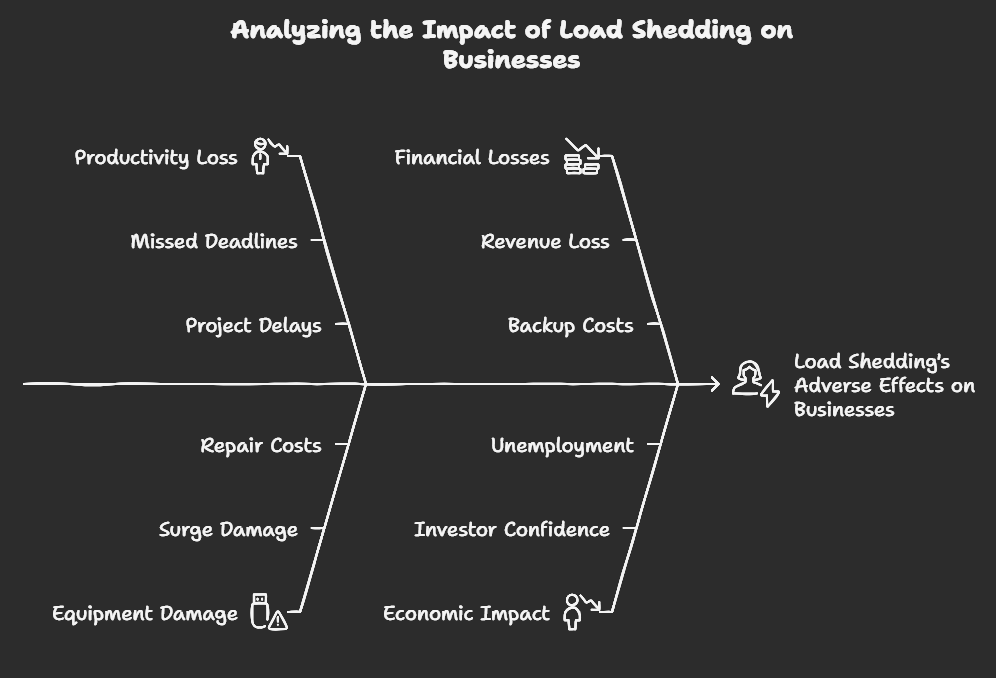The Impact Of Loadshedding On Businesses In SA
2023-03-27 17:12:07

Load shedding, the deliberate and temporary interruption of electricity supply to certain areas, has become a routine occurrence in South Africa over the past few years. The country's power utility, Eskom, has been struggling to keep up with the demand for electricity due to years of underinvestment and a lack of maintenance, resulting in frequent power outages that have had a significant impact on businesses in the country.
The impact of load shedding on businesses in South Africa cannot be overstated. From small, and medium-sized enterprises to large corporations, businesses of all sizes have been affected. The interruption of the electricity supply has led to a loss of productivity, damage to equipment, and financial losses.
One of the most significant impacts of load shedding on businesses is the loss of productivity. When the power goes out, work comes to a halt, and businesses are unable to operate as usual. This can lead to missed deadlines, delayed projects, and decreased output. In some cases, businesses have had to shut down completely during load shedding, leading to lost revenue and decreased customer satisfaction.
In addition to lost productivity, load shedding can also damage equipment and machinery. When the power comes back on, there is often a surge in electricity, which can cause damage to sensitive electronic equipment such as computers, servers, and other devices. This can lead to costly repairs or replacement of equipment, adding to the financial burden already faced by businesses.
Another impact of load shedding on businesses is the financial losses incurred. When businesses are unable to operate as usual, they lose revenue and face increased costs, such as the need to purchase backup generators or alternative sources of power. In addition, businesses may have to pay staff for the time they were unable to work due to load shedding, further adding to the financial burden.

The impact of load shedding is not limited to businesses operating in South Africa. The country's power supply issues have led to a decline in investor confidence, making it more challenging for businesses to secure funding and grow. This has had a ripple effect on the country's economy, leading to increased unemployment, reduced consumer spending, and a decline in overall economic growth.
To mitigate the impact of load shedding on businesses, many have had to invest in backup generators or alternative sources of power such as solar panels or wind turbines. While these solutions can be effective, they are also expensive and not feasible for all businesses, particularly smaller ones with limited resources.
In conclusion, load shedding has had a significant impact on businesses in South Africa, leading to a loss of productivity, damage to equipment, and financial losses. The country's power supply issues have also had a broader impact on the economy, making it more challenging for businesses to grow and thrive. As South Africa continues to grapple with its power supply issues, businesses must find ways to adapt and navigate the challenges posed by load shedding to ensure their survival and success.


